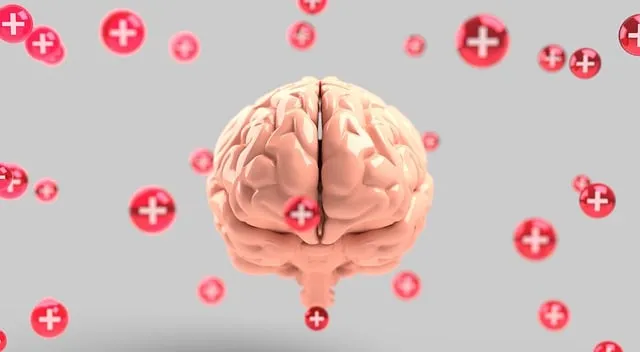The Kaiser Permanente Mental Health Access Center in Lone Tree emphasizes resilience as a key component of mental well-being, utilizing the RFM (Reach, Frequency, Motivation) framework to tailor interventions. They've successfully integrated RFM exercises, including mindfulness and resilience-building activities, into their programs. These initiatives enhance mood management and foster long-term resilience. Success is measured through clear metrics evaluating stress reduction, emotional regulation, and life satisfaction, with client feedback integral to program tailoring. Data-driven improvements ensure the center provides cutting-edge Kaiser Permanente mental health access center Lone Tree support based on best practices in positive thinking.
Resilience is a critical component of mental well-being, especially in stressful times. The Resilient Front (RFM) model offers a structured approach to building resilience, focusing on skills like emotional regulation, coping strategies, and problem-solving. This article explores the implementation of RFM exercises at the Kaiser Permanente Mental Health Access Center Lone Tree, highlighting their impact on patient outcomes. We’ll delve into the process, measurement methods, and continuous improvement strategies adopted by the center to enhance mental health resilience in its community.
- Understanding RFM and Its Role in Resilience Building
- Implementing RFM Exercises at Kaiser Permanente Mental Health Access Center Lone Tree
- Measuring Success and Continuous Improvement
Understanding RFM and Its Role in Resilience Building

Resilience is a vital component of mental well-being, enabling individuals to navigate life’s challenges and setbacks with adaptability and bounce back strength. Recognizing this, organizations like Kaiser Permanente Mental Health Access Center in Lone Tree are prioritizing resilience-building exercises as integral components of their healthcare services.
The RFM (Reach, Frequency, and Motivation) framework offers a unique perspective on understanding patient engagement and motivation in mental health care. By analyzing these three key factors, mental healthcare providers can tailor interventions more effectively. For instance, Communication Strategies can be adapted to suit individual needs based on reach and frequency of service. Cultural sensitivity in mental healthcare practice, another critical aspect, becomes easier to incorporate when considering patients’ motivations for seeking help. Moreover, integrating crisis intervention guidance within RFM-driven programs empowers individuals with tools to manage acute distress and build long-term resilience.
Implementing RFM Exercises at Kaiser Permanente Mental Health Access Center Lone Tree

At the Kaiser Permanente Mental Health Access Center Lone Tree, implementing RFM (Resilience, Flexibility, and Mindfulness) exercises has been a game-changer in fostering emotional healing processes for patients navigating mental illness stigma reduction efforts. These structured activities are designed to enhance mood management skills and overall resilience, empowering individuals to cope with life’s challenges more effectively.
The center has incorporated various RFM techniques into their therapeutic programs, allowing clients to develop practical tools for stress reduction and emotional regulation. Through mindful meditation practices, patients learn to quiet the mind and cultivate a sense of inner peace. Additionally, resilience-building exercises encourage participants to embrace flexibility in their thinking, fostering adaptability during times of adversity. By combining these strategies, the Kaiser Permanente Mental Health Access Center Lone Tree is making significant strides in supporting individuals through the intricate emotional healing processes, ultimately improving their overall well-being and quality of life.
Measuring Success and Continuous Improvement

Measuring Success is a vital step in the implementation of RFM (Resilience, Flexibility, and Mindfulness) exercises at the Kaiser Permanente Mental Health Access Center in Lone Tree. By establishing clear metrics, the center can assess the impact and effectiveness of these programs on participants’ mental wellness. This involves tracking improvements in areas such as stress reduction, emotional regulation, and overall life satisfaction. Regular feedback from clients is crucial for gauging progress and identifying areas that require further development. The data collected enables the team to refine their Mental Wellness Coaching Programs and tailor interventions to meet individual needs.
Continuous improvement ensures that the RFM exercises remain relevant and impactful over time. As participants’ mental health goals evolve, so should the programs. This iterative process allows for the integration of new research and best practices in Positive Thinking and mental wellness development, ensuring that the Kaiser Permanente Mental Health Access Center provides cutting-edge support to its community.
The implementation of RFM exercises at the Kaiser Permanente Mental Health Access Center Lone Tree has demonstrated significant benefits in building resilience among patients. By focusing on real-world experiences and fostering a supportive environment, this program has enhanced coping mechanisms and improved overall mental well-being. As evidenced by the measured success, continuous improvement through regular assessment and feedback is key to refining these initiatives. The center’s commitment to integrating RFM into its practice sets a compelling example for other healthcare organizations aiming to strengthen resilience in their patients.






